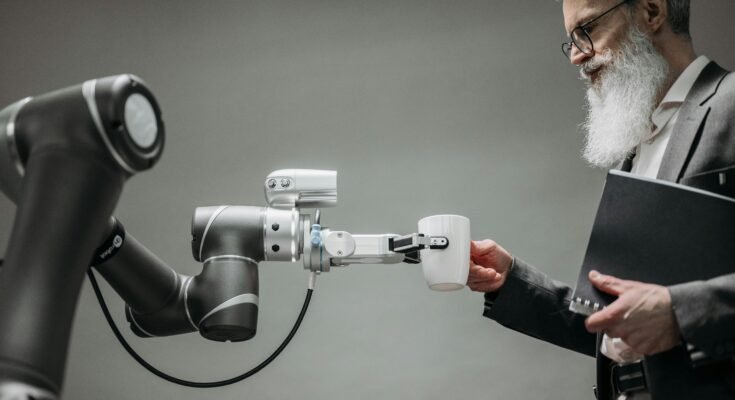In the last couple of years, AI has specifically moved from a tool that only large corporations had a grasp on to now an accessible tool for businesses of all sizes. AI provides exciting opportunities for small businesses to work more efficiently, serve their customers better, and survive in the rapidly evolving market. The aim of this article is to review the ways in which AI changed the landscape for small businesses, what opportunities arise from it, and how small businesses may cope with the forthcoming obstacles.
1. Understand the Role of AI in Small Businesses
AI is the implementation of algorithms and machines to recreate human intelligence in such activities as problem-solving, decision-making, and overall automation. While most will assume this technology is monopolized by super technological companies, the general accessibility offered by cloud-based solutions and affordable software tools effectively democratizes the technology for small businesses.
Some of the popular AI applications to small businesses are:
- 24/7 customer service chatbots
- Predictive analytics for forecasting future sales and trends
- AI-powered personalized marketing via email
- Automated inventory management.
2. The Opportunities AI Presents for Small Businesses
1. Enhanced Customers Experience
An AI-powered chatbot or virtual assistant has the practical potential to deal with customer inquiries throughout the day and night, offering a human touch to their questions without increasing staff costs. For instance, companies like Shopify host AI-powered tools for more effective customer service and guarantee customer satisfaction while ensuring brand loyalty.
2. More Efficient Operations and Reduced Costs
AI automates numerous repetitive tasks such as data entry and inventory management. Such automation solutions, like QuickBooks or Zoho, utilize AI to perform bookkeeping, thus reducing oversight costs due to manual bookkeeping.
3. Better-Focused Marketing
With machine-from analysis of customer data, it becomes easy to create highly targeted and personalized marketing campaigns; tools such as HubSpot or MailChimp allow small businesses to segment customers based on sales history and interests, leading to bounce rates.
4. Intelligent Decision-Making Using Predictive Analytics
AI systems analyze vast amounts of data, thus generating forecasts about distributed conditions. Predictive analytics tools can help enterprises to forecast demand, thus allowing them to procure inventory better and avoid both stock shortages or overstocks.
5. Competitive Advantage in a Flexible Market
There is no doubt that one of the major advantages of AI for small and medium-sized enterprises is increased efficiency in responding to market changes. AI also helps SMEs analyze competitors’ market trends, allowing them to outperform those who must rely on convention.
3. To Address Many Barriers to AI Adoption
Even though AI has tremendous benefits, there are challenges such as:
- Cost and Resource Constraints: Some advanced AI solutions may still be costly. Smaller businesses may start with affordable or, in some cases, free tools, then consider upgrading when they grow sufficiently.
- Learning Curve: The application of AI requires understanding some technical facts. It is recommended to partner with consultants, mentors, or trainings to help you respond to the learning curve.
- Concerns About Data Privacy: Businesses must guarantee compliance with data privacy law whenever they utilize customer data in AI processes.
4Getting Started with AI
Here are some practical tactics that small businesses can use to put AI development to work for them:
- Identify aspects to improve: Look for repetitive tasks or areas of bottleneck that might benefit from automation.
- Explore available options: Start with affordable tools powered by AI, such as chatbots, automated accounting systems, or email marketing platforms.
- Invest in training: Get yourself and competent people on your team acquainted with AI via online courses or workshops.
- Test and measure results: Whenever implementing AI solutions, do so in phases during which time their impacts can be assessed on your performance.
Conclusion
Artificial Intelligence is proving to be the very tool to change how small businesses work, create more efficient processes, lower operating costs, and make customers’ experiences more personalized. Though there are challenges ahead, cheap tools and well-laid plans for the introduction of AI render OEMs equal partners with the big houses. With AI, the smallest of enterprises can prime themselves for sustainable growth and long-running success in a highly competitive market.
With ongoing technology evolution, small businesses that take hold of AI first will grab the opportunity ahead of any other rival.



